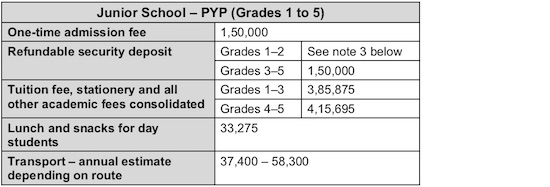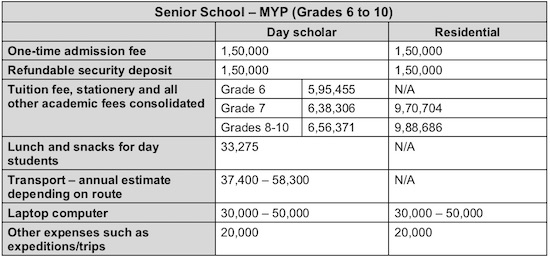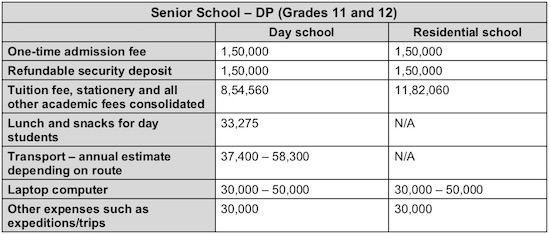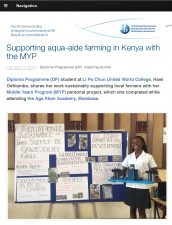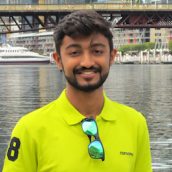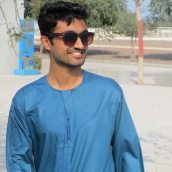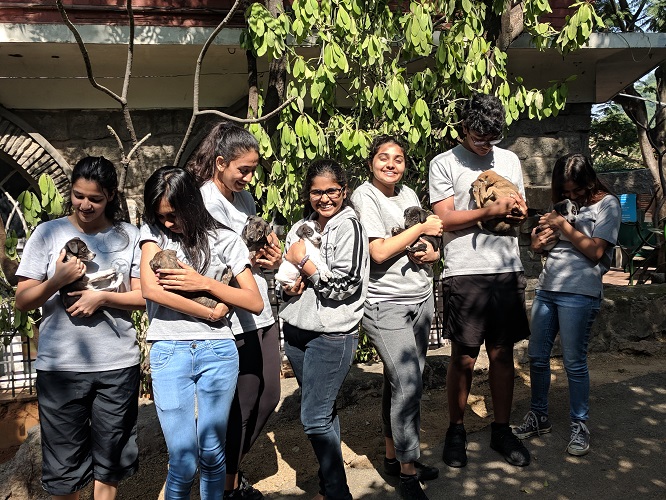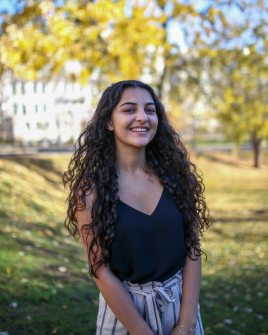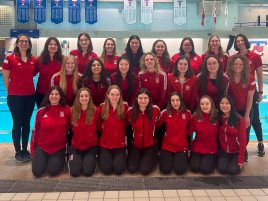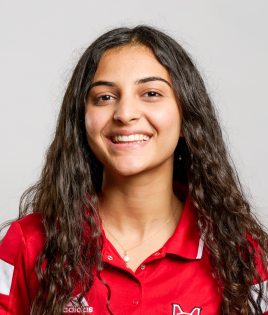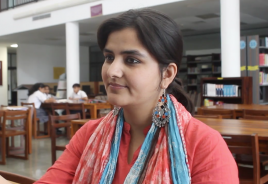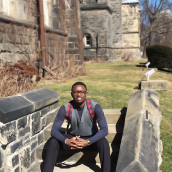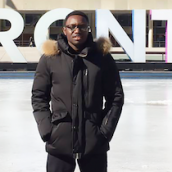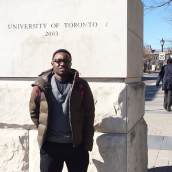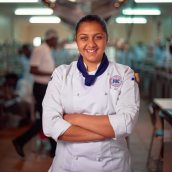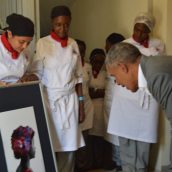Fee schedule test
Fee schedule for the 2018-2019 academic year.
![]() Aga Khan Academy Hyderabad Fee Schedule - 2018-19.pdf
Aga Khan Academy Hyderabad Fee Schedule - 2018-19.pdf
Notes
1 A one-time non-refundable admission fee is payable for students enrolling for the first time. The admission fee must be paid to secure the place for a child at the Academy. This cannot be deferred or paid in instalments. The due date is one week after the offer has been accepted.
2 A one-time refundable security deposit is also payable on acceptance of admission and should be paid together with the admission fee mentioned above. It is refundable when a student leaves the Academy as long as the required notice has been given in writing and “No Dues” clearance is obtained from the Academy. No interest is payable on this deposit.
3 Grade 1 & 2 students will have option to pay refundable security deposit in two instalments. First instalment of Rs. 75,000 when they enter grade 3/4 and second instalment when they enter grade 5/6.
4 A sibling discount on tuition fees of 15% will be applicable for second and subsequent children.
5 Tuition fees for the academic year may be paid in full with an early-payment discount of 3% on or before 31 July. This discount is applicable on the net amount payable after other discounts have been deducted.
6 Tuition fees are payable in two equal instalments, no later than 31st July and 15th December of each academic year. For DP2 (grade 12) students the due date for the second instalment is 15th November.
7 For new admissions to an academic year the tuition fees must be paid within 30 days of admission to secure a place at the Academy.
8 The Academy will charge a monthly sur-charge of 2% on the total outstanding dues older than 30 days. In case the fees are not paid within one month’s period following the deadline, the student will not be allowed to attend classes or participate in other activities undertaken by the Academy.
9 Tuition fees include course fees, use of essential course books, library books, IT and science laboratory equipment and certain classroom supplies. The fees do not include uniform costs.
10 Exam fees for IB Middle Years Programme and the Diploma Programme will be billed separately based on the actual fee issued by the International Baccalaureate Organization (IBO).
11 Parents of returning students will be invoiced four to six weeks prior to the new academic year.
12 The Academy no longer accepts cash for fee payments. All payments must be made by direct bank deposit, bank transfer, cheque or demand draft even if the payment is being made by a third party such as a sponsoring organization. Parents must provide the finance office (finance@agakhanacademies.org), with a hard or an electronic copy of proof of payment showing the full name of the student and the student identification number within 15 days of fund transfer for issuance of payment receipt. Absence of this information may delay crediting the fees reflected on your account in our system.
13 Parents are responsible for ensuring that the fee payments are made into the correct bank account of the Academy. In the unlikely event of any change in bank account details, the changes will be communicated to parents in writing via a hand delivered letter from the Academy.
14 If a student wishes to leave the Academy, one term’s advance notice of withdrawal must be given in writing or one term’s worth of the annual fees will be due and payable. School clearance will not be possible until any outstanding dues are settled in full.
15 The Academy reserves the right to withhold results, school certificates, transcripts or any other information and/or documents until all outstanding dues are settled in full.
16 Admitted students, who demonstrate financial need and duly fill in and submit the application along with required supporting documents within the stipulated time, can be considered for financial aid. An independent financial aid committee is responsible for reviewing and approving any request for financial aid by students.
17 The above terms and conditions may be modified or new terms may apply to reflect changes in the law or our services. For further information, please contact us at admissions.hyderabad@agakhanacademies.org.
18 Please note that fee structures are subject to annual review.
Imtiyaz Hariyani (Class of 2014): From Hyderabad to Abu Dhabi and beyond
Imtiyaz Hariyani credits the Aga Khan Academy Hyderabad with giving him more than just the academic skills he needs to succeed at the undergraduate level. In his words, it has also provided him with “the ability to thrive in a pluralist society and function in an intellectually and culturally diverse setting.” This is particularly fitting for Imtiyaz as he has had experiences in various parts of the world: he has just finished in degree in Biology at NYU Abu Dhabi and has undertaken opportunities in Mombasa and Lisbon. He is working towards a career in research in Molecular Biology or Bioinformatics.
Imtiyaz is from Pune, India and first heard about the Aga Khan Academy Hyderabad in Feburary 2012 – he distinctly remembers making the decision to attend. His parents attended a seminar conducted by the Academy in Pune but they hesitated to ask Imtiyaz if he would be willing to study all the way in Hyderabad. For Imtiyaz, who had grown up at home and was attached to his family, their uncertainty was justified. And yet, he replied, “Why not?”
“Undeniably,” says Imtiyaz, “that day has shaped my career and is the reason for my academic progress and journey to NYU Abu Dhabi.”
At AKA Hyderabad, Imtiyaz was introduced to the merits of a global education and the International Baccalaureate programme. He quickly became familiar with an educational style quite different from what he had experienced in middle school: instead of rote learning, the Academy focuses on understanding concepts in a hands-on, practical manner. Imtiyaz believes that this approach to teaching, along with an emphasis on extra-curricular activities under the banner of Creativity, Activity and Service, led him to redefine what it means to be educated.The Academy in Hyderabad offered students outlets to shape the school’s future. “In the senior school’s first year of establishment, we also received the opportunity to initiate activities that would turn into legacies,” Imtiyaz recalls. With a classmate, he transformed his passion for cricket into the AKA Hyderabad Cricket League, now in its sixth season. “As an alumnus who returned to the Academy three years after graduating,” he reflects, “I was immensely proud to see how the students have respected and maintained the legacies set by the Class of 2014 and have contributed to uplifting their standards to an extraordinary level.”
After graduating from the Academy, Imtiyaz took a gap year and was offered a five-month internship at the Aga Khan Academy Mombasa. There, he tutored students in various subjects, supported the cricket team, and mentored a group of Middle Years Programme students.
Imtiyaz’s internship in Mombasa was the beginning of his global experiences in the past few years. “Mombasa was the first time I had left my country in twelve years and the fact that I was going to a new continent knowing nobody was intimidating at first,” he remarks. “Fast forward two and half years – it has become an essential part of my life.”Last summer, Imtiyaz pursued a research program in Lisbon, the city which is host to the Global Seat of the Ismaili Imamat. There, he celebrated the Diamond Jubilee of His Highness the Aga Khan, the Imam of the Ismaili Muslim community and founder of the Aga Khan Academies, which he thoughtfully describes as “the perfect occasion to rejoice and reflect upon life after the Academy, and to express our gratitude to the Imam who has served the worldwide community for sixty years and has contributed to uplifting the quality of countless lives globally.”
Currently, Imtiyaz is working as a Research Assistant at NYU Abu Dhabi. Imtiyaz attributes his desire to seek the best in his university education and to learn first-hand about other countries and cultures to his experience at the Academy in Hyderabad and the vision of His Highness the Aga Khan.
“The spirit that the Academy embedded in me has allowed me to emerge as a global scholar with the support of my family and lifelong friends that I made in Hyderabad and elsewhere,” he explains. “From Pune to Portugal, I believe this journey is a result of His Highness’s tireless efforts in the field of education, and the Academies which have implemented this vision with great success.”
By Natasha Pirani
Tanya Kakkade: Chasing Big Dreams
Limitless opportunity and a chance to excel can provide the motivation for even the young to do whatever it takes to improve their lives. Grade eight student Tanya Kakkade believes that her education and growth at the Aga Khan Academy, Hyderabad will enable her to pick and choose from the top universities in the world.
The attraction of those possibilities drove her to leave her previous school in Chennai and come to Hyderabad. “I’d always wanted to join a residential school, but the Academy hadn’t been built last year and no grade eight program. This school has a lot of opportunities once you finish; it has a good way of learning and gives you leadership qualities.”
She likes the fact that the AKA doesn’t just focus on education and career development but also on becoming well-rounded adults, encouraging students to participate in a number of activities. Tanya also enjoys being able to try new things at the school during her free time and participating in clubs that will help her in the future, including theatre and publications.
“I want to become a layer; I enjoy fighting for rights and arguing. I can imagine myself getting out of school and getting a lot of job offers or applying for top universities.”
While Tanya left her family behind in Chennai, she hasn’t felt that going to school in Hyderabad has been particularly challenging.
“The school is like a family, so you don’t always miss home [and] they never make us feel homesick. My parents miss me a lot but they say that it’s for [my] education and the AKA is the best school so [they] sacrifice a little fear for [my] good future.”
With her passion for human rights, it’s obvious that Tanya has the makings of a successful professional in the legal field. “I’ve not decided yet, but I’d like to become a business lawyer. I always wanted to go [overseas], maybe apply to a lot of universities and pick from the best.”
In Tanya’s mind, regardless of her future plans, her experiences at the Aga Khan Academy have begun to give her a foundation that she can be proud of.
Muskaan Bhaidani (Class of 2020): Journey to university and the Academy's impact
Muskaan Bhaidani is an alumna of the Aga Khan Academy Mombasa who was in the Class of 2020. Graduating with an impressive International Baccalaureate (IB) Diploma Programme (DP) score of 44 out of 45, Muskaan is now attending McGill University in Montreal, Canada.
Read on to see what Muskaan says about university life and how her time at the Academy contributed to who she is today.
Can you please tell us about yourself, Muskaan?
I did the IB DP from 2018 to 2020 and took economics, geography and English at higher levels and mathematics, biology and French at standard levels. At the time, I took these subjects purely out of interest, and I really enjoyed what I did. However, I’ve always wanted to work in the development sector, so I think geography and economics played into that really well. I also did my extended essay in French since I wanted to improve in it, but now that I am studying in Quebec, it’s been really helpful.
How did you manage to narrow down your interests to zone in on a career path finally?
That’s such a big question to answer! Honestly, I still don’t think I know for sure what I want to do. I think that the path that I’ve chosen to take is just to keep going ahead with doing what I like, which right now is international development with a focus on food insecurity. In fact, I did my personal project at the Academy around food insecurity, and passion has definitely stuck with me over the years. I’ve also taken an interest in social entrepreneurship, which I could potentially see myself pursuing in the future. Right now, however, I’ll be going with the flow and figuring things out one step at a time.
How did you find the university application process? What did you find challenging, and how did you choose between all the universities you got into?
The university process is definitely difficult and scary because of the uncertainty it entails. I applied to the US, UK and Canada. I personally felt that applying to Canada was a much easier process since you don’t have to send in any standardised test scores or personal statements. Their supplementary requirements, if any, are very minimal compared to the UK and the US. And since a lot of Academies students end up coming here, it’s nice to know that you have an established system to fall back on if you need to. I think the main reason I got accepted to the universities I applied to was because of my academic performance and extracurricular activities that I took part in at the Academy which have carried me to university. As for how I decided on McGill in the end, it was mainly a lot of research and making pros and cons lists. I tried to compare universities in terms of the course I’ll be studying, what I want to do in the future, opportunities I would get while still studying, acceptance rate, etc., and McGill stood out to me in all these aspects. Montreal is a great city for students, and I am glad it worked out!
What have you done since you joined university that you are most passionate about?
I have been a part of multiple clubs. One, in particular, is IYAD (IRSAM Youth Advisory Delegation), a youth advisory delegation to the United Nations, where we write policies and present them at the UN Headquarters in New York every year, and it’s been something I’m really passionate about as I used to participate a lot in Model UN. I am now an executive in the club! I also took part in Enactus, a social entrepreneurship club where we mainly try to help local businesses thrive, and it has been a rewarding experience. Lastly, I am also a member of the varsity artistic swimming team – I used to do a lot of swimming at the Academy till COVID-19 happened, and this was the perfect way to get back into it in an artistic form I had never done before!
How has university life been? And how have you been preparing yourself for this upcoming exchange programme you are participating in?
Life at McGill differs a lot from person to person, but it mainly consists of class in the morning, followed by any extracurriculars you may have taken up. I also have a student job as a student advisor, so I have that in my routine as well, besides swimming and clubs. Going into your third or fourth year in university also means you have to cook for yourself and run your own household of sorts – this actually makes up a substantial portion of a student's schedule. I don't find it to be incredibly different from the high school experience, it’s just more diverse in terms of what you study within your specified subject. I will be going on an exchange to UCL in London next semester. Of course, I’m nervous, but I’m looking forward to immersing myself in a new culture since I’ll only be there for three months. I do consider Montreal home now that I’ve lived here for three years, and going away from home is daunting. I hope it feels as welcoming as Montreal. But from what I understand, London is very diverse, with lots of things to do, and I know I need to put myself out there and be open-minded.
How has the Academy helped shape you and prepare you for university?
The Academy has taught me how to put myself out there confidently by never limiting me and assuring me that I can do anything I set my heart to. It has a way of boosting your self-esteem and shows you your strengths and uniqueness. I engaged in a lot of communal activities and opportunities at the Academy, so I don’t find it difficult to do the same at university, whether that’s applying for a challenging course, position or an exchange programme.
How important do you think it is for students to reach out to Academies alumni?
I think it’s very important. We all leave school and make great friends at university, but the friends you make at the Academy are just different because it is so easy to spend time with them for hours and feel surrounded by a sense of community and warmth. In fact, my roommate now at McGill is a good friend of mine from the Academy. It is easier to reach out on an established Academies-centric network if and when you need help, especially because all of us who have been through the application process are always willing to help whenever we can. Having an alumni community only makes it more accessible and convenient to reach out.
Do you have any advice for students going through the university application process right now?
Work on your predicted grades, those are very important. Build good relationships with your teachers and they can direct you on how to constantly get better at your subjects. And, this might sound cliché, but be authentic in your applications. You never know what a university wants in its essays, and in a pool of incredibly smart and talented applicants, the only way to truly stand out is to be your unique self. So, focus on what you are interested in as opposed to what you think others might find interesting.
Interview conducted by DP2 student Samhitha Paruchuri from the Aga Khan Academy Hyderabad.
Junior School Inter-school Athletics
Come and support our young athletes on 19 March!
Maryam: Becoming a better teacher
The Teacher Preparation Programme (TPP) is one of the Aga Khan Academies’ landmark teacher development initiatives. In this interview with Kamini Menon at the Aga Khan Academy Hyderabad, TPP participant Maryam talks about the TPP’s unique aspects and her experience with the programme.
Please tell us a little bit about your background.
I’m a part of the Teacher Preparation Programme in Hyderabad. This is my fifth year in teaching, and previously I worked for a Teach for India school in Delhi teaching 48 amazing girls. When my fellowship with Teach for India was over, I applied to the Academy, and here I am.
What made you join the Academy and inspired you to come here?
My previous experience as a Teach for India Fellow made me feel like I wanted to something more than just being a teacher. So I was looking for an option post-fellowship that shared a similar mindset or similar values. When I read about the Academies, the vision really interested me as well as the whole inclusive policy: giving a chance to anyone coming from any background and making sure that we provide them this idea of excellence in education. That was something that really inspired me, and so I joined the Academy.
Talk about the Teacher Preparation Programme (TPP) and where you are in that journey.
The Teacher Preparation Programme is the initiative of the Academies to make sure that we have home-grown teachers who become IB educators. This is a great initiative. This is my ninth month into the programme, and I teach in a classroom, I research, and do a lot of things at the same time. I am getting mentored by experts and improving my pedagogy every day.
Can you explain the structure of TPP? How it is organised and what does it involve?
The programme is an intense 18-month long process, and you do things in phases. In Phase One, we were in a classroom, paired with a mentor, teaching 20% of the time. Now, we are in Phase Two, and I have to teach 50% of my time in a classroom. But it’s not just the teaching. We also have to write an action research paper, which is crucial to the whole programme. Another thing which is important is the Problem-Based Learning Sessions, which are a great way to reflect on who you are as a person, not just as a teacher. In these sessions, we meet three times in a week, and we bring together all our research findings and what we have collected, and we progress to the next learning target. We work on this in groups, and then we get to reflect and apply that in a classroom at the same time.
Can you share two aspects of the programme that you find particularly unique or helpful?
For me, the most interesting part was problem-based learning. It takes a lot of patience to think in a broader way about a problem. The problem sets are given to us – then you create your learning targets, and the whole group researches with different objectives. That makes you really responsible, that improves your research skills. At the same time, it teaches you how to collaborate with members of the group. Another part that I find really interesting and at the same time challenging is my action research piece. It’s not just research; the action part is the most challenging part because you have to reflect on your own practice. For example, I am doing something on inquiry right now, but it’s not just inquiry – it’s “why inquiry in an IB classroom?” or “why even think of those big theories?” So, this has made me more reflective, it has made me more thorough with my work. At the same time, if and when I fail, it’s alright to seek advice and it’s alright to go back to my mentor to ask why this did not work in a classroom. Both problem-based research and the action research, I find that these are pushing me to become a better teacher.
How would you evaluate the model of mentorship that’s in place within the TPP?
Sandra is our mentor, and she is a really experienced Ontario teacher. She has streamlined the programme, she gave it more structure and depth. When you work with Sandra, you are not intimidated by her. You are working with an expert who knows so much, but at the same time she gives you a chance to really apply yourself. She is a mentor for me when I am doing anything in the classroom – she is always providing me with constant feedback on my pedagogy and on my action research paper. Even in the intense Problem-Based Learning Sessions, where it gets a little crazy at times, Sandra is always there to nudge you in the right direction so you come to a conclusion.
How do you and your colleagues in the TPP work together and collaborate?
We are a very diverse group. Sitting with all of them has made me a better teacher in so many ways. It is not easy to admit sometimes that you don’t know things, but I get to learn from these people because their experience, our discussions, and the help we give each other is really great. We also collaborate outside the classroom – for example, if I have a doubt or find something challenging, I go to one of these colleagues and ask for their help. They are always there for me. We really push each other to reflect, to ask the right questions, which makes you think.
Can you talk more about the process of reflection that you have in your TPP group?
For us, reflection is about making yourself vulnerable in front of the whole group. It is not easy – it is not at all easy. We don’t reflect on a superficial level; we have to really apply ourselves in the entire process. When create our reflections, we have to share them with the whole group – and the group knows and understands who you are and gives you feedback. They push you to think along certain lines, and our mentors force us to think about the way we think – it becomes more about metacognition. The whole idea of learning from someone is that you have to be vulnerable and sometimes even fail, and then admit that you failed. When you draft that experience into a reflection, it makes you a better teacher. And definitely a better person.
How do you think the TPP has made you a better person in actual fact?
The way the TPP is designed, you become a reflective practitioner – that’s the goal! You teach in a classroom and you know that it’s not just a physical space, it’s much more than that. You cannot teach in isolation – you have to collaborate with other people, you have to go and ask for help. At the culmination, you really will become a better teacher. It’s a rigorous process, it’s an intense process, it’s a very reflective process. But the goal is that, ultimately, you will be the kind of teacher you want to be as well as an effective teacher.
Can you give us an example of how you’ve applied something you’ve learnt through the TPP in a classroom setting?
Right now, I am doing an action research, and a huge chunk of this is based on inquiry-based learning in a classroom. I’m teaching grade 6, and the unit I was dealing with was “did they live like us?” It is a lot about civilisations and the way people lived and interacted with their environment. All the research that I did during the Problem-Based Learning Sessions and my action research, I applied it in this classroom setting. I created the lesson plan and then got the feedback from my mentors. Then it gave me a chance to reflect on my practice: sometimes I tend to go a little overboard, and I got to see if my plan would work out. This is how you become a better teacher.
Is there anything else that you’d like to add about the TPP?
I’ll say, for the whole process, you have to be very open. You have to be open-minded to get into this process. It’s not easy just to acknowledge that you’re going though 18 months of training – you might feel intimated, or that your prior experience doesn’t matter. But that’s not the point. The point is to become a better teacher. If that is your goal, then this programme will work for you. The way this programme is designed is rigorous and beautiful. The most important point depends on you: what do you want to take away from this. And there is a lot, if you are really open to exploring.
Kelvin Njue (Class of 2015): Changing lives through education
“I believe that with education, people have the power to tackle and solve problems that affect their communities,” reflects Kelvin Njue, a graduate from the Aga Khan Academy Mombasa. Upon graduating from the Academy in 2015, Kelvin was unsure if he would be able to pursue higher education, until he received an email about the Ontario Tuition Waiver Programme from his university counsellor at the Academy. Kelvin explains:
“My intention was to go to university straight after high school, but I needed to take a gap year so that I could find the means to attend university.” During his gap year after graduating, he found out about the waiver programme. “I applied as I knew acquiring a university education would change my life and would open up many other opportunities…Without the tuition waiver programme, I was going to struggle attending an institution of higher education…It gave me hope and is something that has allowed me to access quality education.”
During his gap year, Kelvin interned at Diamond Trust Bank in Nairobi, assisting clients with their day-to-day banking needs and providing customers with banking solutions. Kelvin is currently enrolled in the Faculty of Arts and Science at the University of Toronto, aspiring to complete the Financial Economics (Specialist) programme with a minor in employment relations. Kelvin shares his love for economics: “I have always had an interest in economics and have wanted to study it since high school. I wanted to find a job during my gap year that would allow me to apply concepts in economics. I felt that working in the bank aligned with both my academic and career aspirations.” In his first year of university, Kelvin was enrolled in economics, mathematics and sociology courses, of which sociology has been his favourite: “I am really enjoying looking at social inequality and social institutions and how society functions. It ties into economics really well and how society works in different ways.”
When Kelvin is not studying, he spends his time playing intramural volleyball, playing drums with students from his dormitory and exploring Toronto. For Kelvin, one of the biggest adjustments he had to deal with in his move to Canada was the weather: “I have been away from my family for many years attending school, so that wasn’t as difficult for me. The hardest thing for me was getting adjusted to the weather in Canada.” Kelvin has embraced the cold winters in Canada, learning to ice skate this past winter. Kelvin is hoping to become more involved with extracurricular activities offered by University of Toronto next year: “For next year, I would like to join the Business Board on the University of Toronto governing council board. The opportunity allows members to manage different business activities that take place around the university and I am very interested in this. I also want to explore different sports next year and would like to join intramural teams.”
One of Kelvin’s passions that began to cultivate throughout his time at the Academy is ensuring that all people have access to a quality education: “Because I have had so much support from the Academy and different programs that helped to finance my own academics, I would also like to give this opportunity to other children to get the same quality of education that I have been able to acquire. I want to start up an organisation or programme that can offer financial support or scholarships for students so that they can also attend school and get an education.”
During his time at the Academy, Kelvin was able to visit a slum in Nairobi and worked with students from grades 1 to 6 for a six-week period, partnering with the Aga Khan Foundation to distribute reading materials, books, pencils and bags to students living in the community. Kelvin attributes his passion for wanting to make change in the world to his time at the Academy: “I think the Academy was able to give me self confidence and motivated me in believing that I am an agent of change in making the world a better place and that I should always take every opportunity to make a change, no matter how big or small it is."
By Karina Hussein
Qamili Dave (Class of 2017): Mastering the art of cooking
Qamili Dave is a passionate culinary arts professional from Mombasa, Kenya who graduated from the Aga Khan Academy Mombasa in 2017, which she joined in Year 1.
For Qamili, being part of the Academy was such an interesting and enriching experience - something she is always appreciative of as it shaped her to be the person she is today. For one, the open and trusting environment cultivated at the Academy helped to elevate her self-confidence as she fondly recalls, “The Academy really helped me to stand up for myself. I felt so safe asking teachers questions and they always encouraged it.” Joining college, she would continue to carry herself with the same confidence, eventually running and winning to become Student Council President at Boma International Hospitality College for two terms.
If there’s one accomplishment Qamili is really proud of during her time at the Academy, it is the exciting opportunity she was afforded to intern at the Serena Beach Hotel Mombasa through the Aga Khan Development Network Internship Programme. This chance, she says, defined the course of her career and future as it is where she became certain about pursuing a career in culinary arts. “Although I knew I loved to cook, I wasn’t sure it was the right profession for me. However, during my internship I realised I was on the right path. It was hands down the biggest stepping stone to my career because I learnt almost all the basics and this made college a breeze,” says Qamili. “The experience also introduced me to the real working environment; how to formally interact with people and some of the challenges I would face while working. All in all, I really enjoyed it.”
Although she has had to move back home to Mombasa after graduating college because of the impact COVID-19 has had on the hospitality industry, Qamili says this has in fact been a blessing in disguise. She has used this time to complete two online Harvard courses - ‘Science & Cooking: From Haute Cuisine to Soft Matter Science’ in both chemistry and physics. She has also dedicated this time to grow her food page (@chaqula_) on Instagram and explore recipes from different cultures. In addition, Qamili has been helping out her parents with their advertising and signage business ‘Eyecatchers & Daughters’, which she says has taught her a lot about running a business.
“It’s been eye opening and refreshing,” Qamili says of the experiences.
Having found what she believes to be her calling in life, the thing that Qamili loves most about being a chef is preparing a good satisfying meal that warms the hearts of people, especially her loved ones.
For her words of wisdom to current students at AKA Mombasa, Qamili says: “I would tell them to appreciate their teachers and everyone supporting them. I would also tell them to work smart; to be effective and efficient in everything that they do. Lastly, I would advise them to take advantage of the internship opportunities provided by the Academy to get as much exposure as they can as this will really give them insight on the career path that is right for them.”
